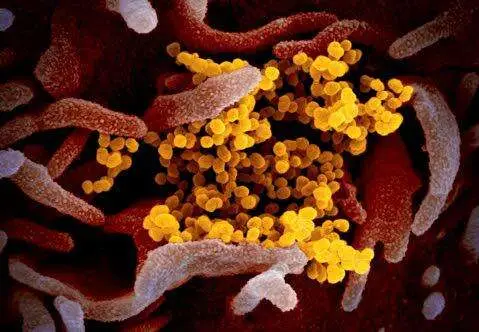
COVID-19 jobs: Virologist
Virologists study viruses that affect humans, animals, insects, bacteria, fungi, and plants in community, clinical, agricultural, and natural environments. Their primary work is to figure out how diseases like AIDS, SARS, COVID-19, and hepatitis spread, in order to prevent more rampant development and to assist in vaccine development.
Virologists typically work in research or teaching, and many split their time between these two activities. They may also work as science writers or pursue additional training to work in the pharmaceutical business or law. Researchers may be employed by universities, government agencies, or health organisations. Some virologists work in industry research and develop new medications.
Medical doctors focusing on virology may carry out clinical research or work with patients afflicted with viruses.
Step 1: Earn a Bachelor’s Degree
Virology is not typically offered as a bachelor’s degree major. Because a strong science background is essential, most aspiring virologists major in biology, chemistry, or a related science as undergraduates. Coursework that includes organic chemistry, inorganic chemistry, biology, cell biology, biochemistry, microbiology, physics, mathematics, English, humanities, and social science can prepare students for graduate degree programmes in virology.
Success Tips:
Gain experience working in a lab environment. Though students will likely have the opportunity to work in the lab during their degree programme, they should also pursue any available research opportunities. Many schools have resources that match students up with potential internships. Students can also search job boards and other online resources for openings.
Work closely with mentors. Undergraduate students may want to gain research experience and form strong relationships with their research mentors, since letters of recommendation are commonly required for admission to graduate school.
Develop interpersonal and communication skills. Virologists typically work on research teams in their doctoral programmes as well as in their professional careers. Aspiring virologists can benefit by polishing these skills as undergraduates through writing and speech classes.
Step 2: Take Graduate School
Medical schools require applicants to take the Medical College Admission Test (MCAT). Virology PhD programmes may require the Graduate Record Examination (GRE).
Success Tip:
Take a GRE subject exam. Virology graduate programme admissions committees may favour individuals who complete a relevant subject test in chemistry, biology, or molecular biology.
Step 3: Complete Doctoral or Medical Training
In general, PhD programmes in virology, immunology, or a relevant field take 4-6 years to complete and are very research oriented. During the first year, students usually take science courses such as cell biology, virology, bacteria structure, prokaryotic and eukaryotic genetics, immunology and cancer biology, as well as complete lab rotations. Laboratory work and research for the dissertation become intensive in the second year. Qualifying exams and teaching experience are typically required in the second or third year, and the rest of the time is devoted to researching and writing the dissertation. Possible research areas include environmental virology, parasitology, pediatric viral infections, HIV vaccination development, and cancer suppression techniques.
For those taking the medical school route, their first two years are focused on coursework and lab work covering topics like anatomy, pharmacology, and biochemistry. The last two years are characterised by clinical rotations throughout major medical departments including pediatrics, surgery, and family medicine.
Success Tip:
Take advantage of career services. Doctoral programmes may coordinate virology career workshops and career fairs. They may also provide career advising services to help students figure out their career paths.
Obtain a dual MD/PhD. These dual degree programmes may interject PhD work in the middle of the typical course of medical school. After the first two years of medical and science classes, dual-degree students may spend several years taking academic virology courses and performing research before completing medical school clinical work.
Step 4: Complete Postdoctoral Research Training
Graduates from medical school must complete additional residency requirements that usually last three years. Aspiring virologists often complete their residencies in pediatrics or internal medicine.
Individuals who want to work in virology research are typically required to complete an additional 3-5 years of postdoctoral research training, often called a fellowship, after graduating from PhD programmes or completing their medical residencies. In addition to carrying out research in their area of interest, postdoctoral students attend research retreats, seminars, and symposiums to learn additional skills to succeed as researchers, such as teaching and presentation skills. Fellows are typically required to participate in a journal club to share research findings. They may also elect additional graduate courses in virology topics or take a grant writing course.
Step 5: Earn a Medical Licence
Virologists with MD degrees must be licensed in order to work as clinical virologists. After completing medical school and residency requirements, they must pass the US Medical Licensing Examination tests. States may have additional requirements. The licence must be renewed periodically, requiring continuing education and professional development activities.
Step 6: Continue Education
Virology is an ever-expanding field with new developments that can cause drastic changes. Therefore, it is essential to remain apprised of advances in research. Organisations such as the Pan-American Society for Clinical Virology and the American Society for Virology are good organisations to look into regarding seminars, symposiums, and networking opportunities.
— study.com
























